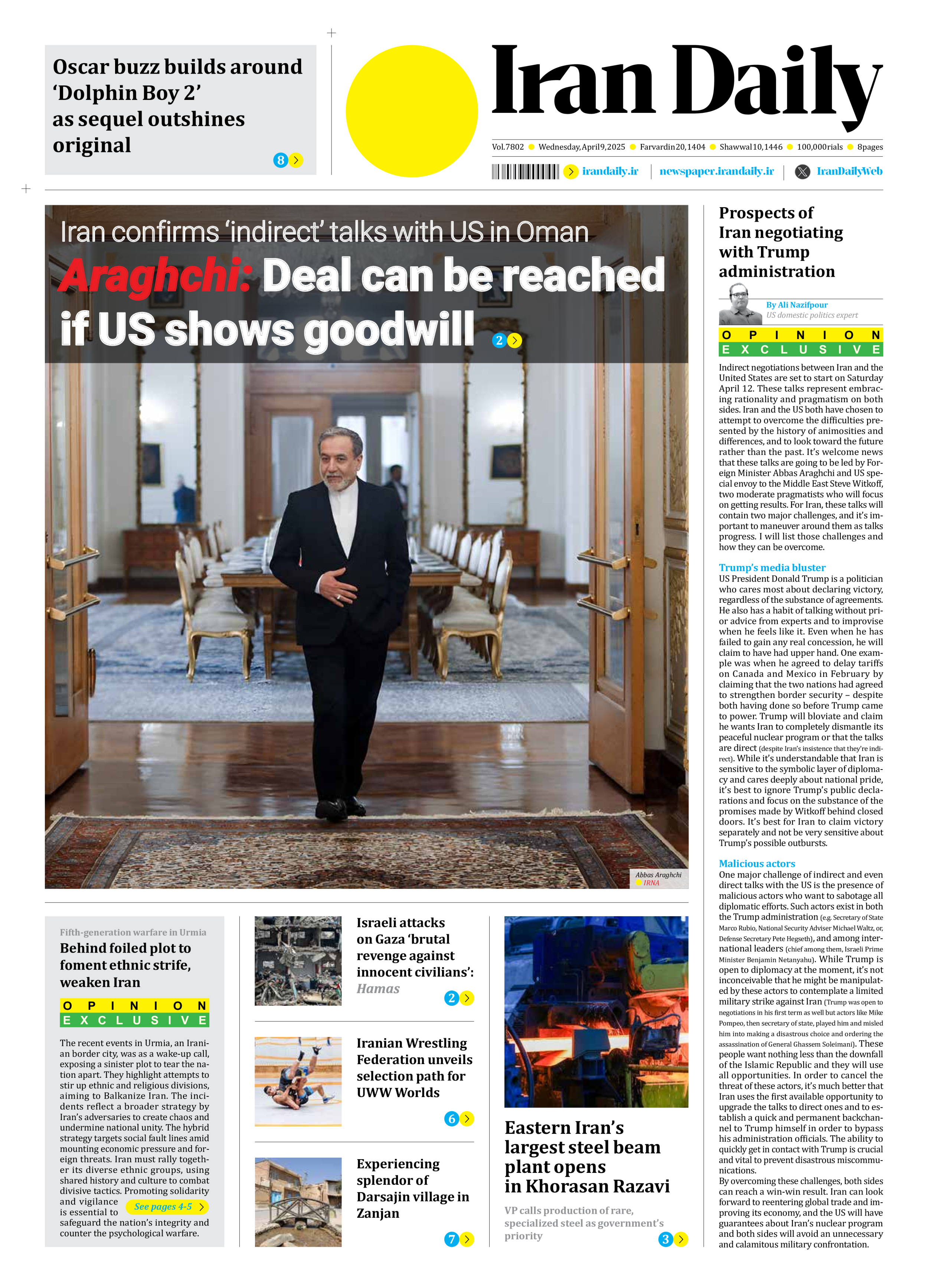
Prospects of Iran negotiating with Trump administration
By Ali Nazifpour
US domestic politics expert
Indirect negotiations between Iran and the United States are set to start on Saturday April 12. These talks represent embracing rationality and pragmatism on both sides. Iran and the US both have chosen to attempt to overcome the difficulties presented by the history of animosities and differences, and to look toward the future rather than the past. It’s welcome news that these talks are going to be led by Foreign Minister Abbas Araghchi and US special envoy to the Middle East Steve Witkoff, two moderate pragmatists who will focus on getting results. For Iran, these talks will contain two major challenges, and it’s important to maneuver around them as talks progress. I will list those challenges and how they can be overcome.
Trump’s media bluster
US President Donald Trump is a politician who cares most about declaring victory, regardless of the substance of agreements. He also has a habit of talking without prior advice from experts and to improvise when he feels like it. Even when he has failed to gain any real concession, he will claim to have had upper hand. One example was when he agreed to delay tariffs on Canada and Mexico in February by claiming that the two nations had agreed to strengthen border security – despite both having done so before Trump came to power. Trump will bloviate and claim he wants Iran to completely dismantle its peaceful nuclear program or that the talks are direct (despite Iran’s insistence that they’re indirect). While it’s understandable that Iran is sensitive to the symbolic layer of diplomacy and cares deeply about national pride, it’s best to ignore Trump’s public declarations and focus on the substance of the promises made by Witkoff behind closed doors. It’s best for Iran to claim victory separately and not be very sensitive about Trump’s possible outbursts.
Malicious actors
One major challenge of indirect and even direct talks with the US is the presence of malicious actors who want to sabotage all diplomatic efforts. Such actors exist in both the Trump administration (e.g. Secretary of State Marco Rubio, National Security Adviser Michael Waltz, or, Defense Secretary Pete Hegseth), and among international leaders (chief among them, Israeli Prime Minister Benjamin Netanyahu). While Trump is open to diplomacy at the moment, it’s not inconceivable that he might be manipulated by these actors to contemplate a limited military strike against Iran (Trump was open to negotiations in his first term as well but actors like Mike Pompeo, then secretary of state, played him and misled him into making a disastrous choice and ordering the assassination of General Ghassem Soleimani). These people want nothing less than the downfall of the Islamic Republic and they will use all opportunities. In order to cancel the threat of these actors, it’s much better that Iran uses the first available opportunity to upgrade the talks to direct ones and to establish a quick and permanent backchannel to Trump himself in order to bypass his administration officials. The ability to quickly get in contact with Trump is crucial and vital to prevent disastrous miscommunications.
By overcoming these challenges, both sides can reach a win-win result. Iran can look forward to reentering global trade and improving its economy, and the US will have guarantees about Iran’s nuclear program and both sides will avoid an unnecessary and calamitous military confrontation.







